SGGE Speakers GALLERY
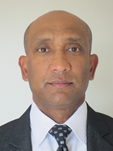
Udaya K. Madawala
The University of Auckland, New Zealand
Fellow IEEE, Distinguished Lecturer IEEE
Udaya K. Madawala graduated with a B.Sc. (Electrical Engineering) (Hons)
degree from The University of Moratuwa, Sri Lanka in 1987, and received
his PhD (Power Electronics) from The University of Auckland, New Zealand
in 1993 as a Commonwealth Doctoral Scholar. At the completion of his
PhD, he was employed by Fisher & Paykel Ltd, New Zealand, as a Research
and Development Engineer to develop new technologies for motor drives.
In 1997 he joined the Department of Electrical and Computer Engineering
at The University of Auckland and, at present as a Full Professor, he
focuses on a number of power electronics projects related to wireless
grid integration of EVs for V2G applications and renewable energy.
Udaya is a Fellow of the IEEE and a Distinguished Lecturer of the IEEE Power Electronic Society (PELS), and has over 30 years of both industry and research experience in the fields of power electronics and energy. He has served both the IEEE Power Electronics and Industrial Electronics Societies in numerous roles, relating to editorial, conference, technical committee and chapter activities. Currently, Udaya is an Associate Editor for IEEE Transactions on Power Electronics, and a member of both the Administrative Committee and Membership Development Committee of the IEEE Power Electronics Society. He was the General Chair of the 2nd IEEE Southern Power Electronics Conference (SPEC)- 2016, held in New Zealand, and is also the Chair of SPEC Steering Committee. Udaya, who has over 300 IEEE and IET journal and conference publications, holds a number of patents related to wireless power transfer (WPT) and power converters, and is a consultant to industry.
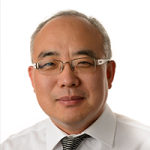
Professor Joe Dong
The University of New South Wales, Australia
Fellow IEEE | Director of UNSW Digital Grid Futures Institute, Head of School of Electrical and Information Engineering
Z.Y. Dong received the Ph.D. degree in electrical engineering from The University of Sydney, Australia in 1999. He is currently a SHARP Professor in Energy Systems and the Director of UNSW Digital Grid Futures Institute, The University of New South Wales (UNSW), Sydney, NSW, Australia. His previous roles include Professor and the Head of School of Electrical and Information Engineering, The University of Sydney, and Ausgrid Chair and the Director of the Ausgrid Centre for Intelligent Electricity Networks providing R&D support for the Smart Grid, Smart City national demonstration project in Australia. He is a Web of Science Highly Cited Researcher and Fellow of IEEE with expertise in smart grid, smart cities, power system planning and dynamics, and electricity market. He has been serving as editor/associate editor for a number of IEEE Transactions and IET journals.
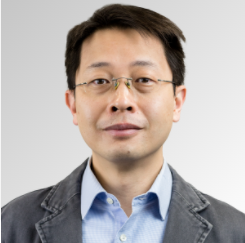
P. W. T. Pong
The University of Hong Kong, Hong Kong
Senior Member of IEEE
Philip W. T. Pong (Ph.D., FIET, FIMMM, FNS, CEng, CPhys, RPE, SMIEEE) is a chartered physicist, a chartered electrical engineer, a chartered energy engineer, and a registered professional engineer (Electrical, Electronics, Energy). He is working on magnetoresistive magnetic field sensors, smart grid, and nano-bio at the Department of Electrical and Electronic Engineering (EEE), HKU. He received a B.Eng. in EEE of HKU (1999-2002) with 1st class honours. Then he studied for a PhD in engineering from the University of Cambridge (2002-2005). After working as a postdoctoral researcher at the Magnetic Materials Group at the National Institute of Standards and Technology (NIST) for three years, he joined the HKU Faculty of Engineering where he is now an associate professor working on magnetic tunnel junction (MTJ) sensors, and the application of magnetoresistive sensors in smart grid and nanobiotechnology. He is a Fellow of the Institution of Engineering and Technology (FIET), a Fellow of the Institute of Materials, Minerals and Mining (FIMMM), a Fellow of the Energy Institute (FEI) and also a Fellow of the NANOSMAT Society (FNS). He is a Senior Member of IEEE and corporate member of HKIE in Electrical Division and Electronics Division. He is an associate editor for two SCI journals: International Journal of Modern Physics B and Modern Physics Letters B."
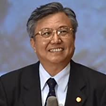
Prof. Ching Chang Lee
National Cheng Kung University, Taiwan
Ching Chang Lee is with rich work experience. Section Chief, Environmental Protection Bureau, Department of Health(1986-1987); Section Chief, Environmental Protection Administration Government of the Republic of China(1987-1988); Lecturer, Department of Environmental and Occupational Health, College of Medicine, National Cheng Kung University(1991-1993); Associate professor, Department of Environmental and Occupational Health, College of Medicine, National Cheng Kung University ( 1993-2007 ) ; Director, Department of Environmental and Occupational Health, College of Medicine, National Cheng Kung University(1996-1999); He works as a distinguished professor in Department of Environmental and Occupational Health, College of Medicine, National Cheng Kung University from 2007 to now. He is also a director of Research Center of Environmental Trace Toxic Substances, National Cheng Kung University from 1999. Fellow of The academic of Fellows, ISIAQ. President of Taiwan Society of Indoor Environmental Quality.
He got his Bachelor of public health-
Department of Public Health, National Taiwan University in1980; Master of
environmental engineering - Graduate Institute of Environmental
Engineering, National Taiwan University in1982; Ph.D in Graduate Institute of
Environmental Engineering, National Taiwan University in1992.
His major fields of study include Risk assessment and management of toxic
substances, Food safety and hygiene, Endocrine disruptor exposure and health
outcomes, Sampling and analysis of environmental and occupational trace
pollutants, Environmental and Occupational Health, Air pollution and control,
Health risk assessment and management of toxic chemicals
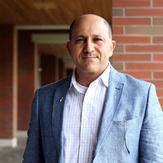
Prof. Hossam A. Gabbar
University of Ontario Institute of Technology (UOIT), Canada
Dr. Gabbar is a full Professor in the University of Ontario
Institute of Technology (UOIT) in the Faculty of Energy Systems and Nuclear
Science, and cross appointed in the Faculty of Engineering and Applied Science,
where he has established both the Energy Safety and Control Lab (ESCL) and
Advanced Plasma Engineering Lab. He is the recipient of the Senior Research
Excellence Aware for 2016, UOIT. He is leading national and international
research in the areas of smart energy grids, safety and control systems,
advanced plasma systems and their applications on nuclear, clean energy and
production systems. He is leading research in Canada with international
recognition in energy safety and control for nuclear and energy production
facilities. Dr. Gabbar obtained his B.Sc. degree in 1988 with first class of
honor from the Faculty of Engineering, Alexandria University (Egypt). In 2001,
he obtained his Ph.D. degree from Okayama University (Japan) in the area of
Safety Engineering. From 2001 till 2004, he joined Tokyo Institute of Technology
(Japan), as a research associate in the area of process systems engineering.
From 2004 till 2008, he joined Okayama University (Japan) as a tenured Associate
Professor, in the Division of Industrial Innovation Sciences. From 2007 till
2008, he was a Visiting Professor at the University of Toronto, in the
Mechanical Engineering Department.
He has more than 210 publications, including patents, books / chapters, journal
and conference papers. He been invited and participated in world-known
conferences and delivered plenary talks on number of scientific events and
through invitations to international universities, including: Alexandria
University-Egypt, Helwan University-Egypt, Qatar University-Qatar, PI-UAE, Mayor
of Nanjing-China, Tsinghua University-China, China University of
Petroleum-China, UTM-Malaysia, Oil & Gas Industry-UAE / Kuwait, University of
New Mexico-USA, Durham Strategic Energy Alliance (DSEA)-Canada, R&D Priorities
to Integrate Natural Gas and Electricity infrastructure to Maintain
Flexible-Canada, Canada Mission to China, Energy Hearing Committee in the House
of Commons in Ottawa-Canada, and Canadian Workshop on Fusion Energy-Canada.
Dr. Gabbar has been active in developing and conducting educational and training
courses and workshops for undergraduate, graduate students as well as for
professionals from industry in the areas of energy safety and control
engineering for nuclear, energy, and oil & gas facilities, including shutdown
systems, safety design, safety verification, intelligent control and protection
systems, integrity management, risk management, disaster management, and
resilient energy infrastructures.
Dr. Gabbar has been active in leading national and international scientific and
community events and activities, including: Nuclear Safety Standards within CSA
– Canadian Standard Association, IEEE Annual Conference on Smart Energy Grid
Engineering (SEGE), IEEE Nuclear and Plasma Sciences Society (NPSS) Symposium on
Real Time Measurement, Instrumentation, and Control (RTMIC), IEEE Nuclear and
Plasma Sciences Society Symposium on Plasma and Nuclear Systems (SPANS), and
other international events. He is the Editor-in-Chief of the International
Journal of Process Systems Engineering (IJPSE), and member of IEEE Smart Grid
Committees.
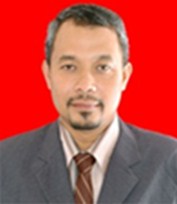
Prof. Tjokorda Gde Tirta Nindhia
Udayana University, Indonesia
Tjokorda Gde Tirta Nindhia received Doctor Degree from Gadjah Mada University (UGM) Yogyakarta, Indonesia on August 2003, with major field of study was Material Engineering. He participated in various international research collaborations such as with Muroran Institute of Technology Japan (2004), Toyohashi University of Technology Japan (2006), Leoben Mining University Austria (2008-2009), Technical University of Vienna Austria (2010), Institute Chemical technology of Prague Czech Republic (2012-now) and very recently with Michigan State University (MSU) and University of Hawaii in the USA under Fulbright Scholarship. His current job is as Full Professor in the field of Material Engineering at Engineering Faculty, Udayana University, Jimbaran, Bali, Indonesia. His research interest covers subjects such as, Biomedical Engineering, biosensor, biomaterial, waste recycle, failure analyses, advance ceramic, metallurgy, composite, renewable energy, and environmental friendly manufacturing.
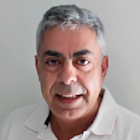
Prof. Dimitrios Karamanis
University of Patras, Greece
Professor of Alternative Energy Sources at the Department of Environmental Engineering of the University of Patras. He studied Physics at the University of Ioannina (1986-1990) where he submitted his doctoral thesis (1990-1997). With Postdoctoral Fellowships at CEN Bordeaux (Marie Curie 1999-2001) and at the University of Ioannina (Marie Curie 2001-2002 and until 2008), Prof. Karamanis has thirty years of research experience in the fields of alternative energy sources with special emphasis on wind and solar energy utilization technologies in the last decade. Participating in competitive National and International research programs as scientific coordinator and researcher, he has published over 110 scientific papers in scientific journals, patents and chapters in books with >3000 citations and h-index 35 (Scopus). Prof. Karamanis teaches courses on renewable energy sources, energy efficiency and RES applications in Departments of the Universities of Ioannina and Patras since 2006.
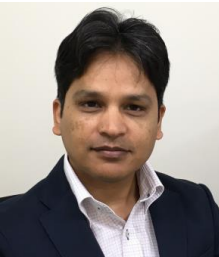
Assoc. Prof. Bashir Ahmmad ARIMA
Yamagata University, Japan
Dr. Bashir Ahmmad Arima has completed his PhD at Kagoshima University, Japan. Currently, he is an associate professor at the Graduate School of Science and Engineering, Yamagata University, Japan. Prior to joining the current institution, he had been working as an assistant professor and a researcher at Okayama University and Kyushu University, respectively. He is a recipient of a Japanese government scholarship and a JSPS postdoctoral fellowship in Japan. His research interests include solar energy (solar hydrogen, solar cells), nanomaterials, photocatalysis, and magnetic materials. He has published more than 80 scientific journal papers, one patent and two book chapters. He had been an editorial board member of “Energy” and a guest editor of the “International Journal of Photoenergy”. He is currently serving as an advisory board member of “MIST International Journal of Science and Technology”, an editorial board member of “American Research Journal of Electrical Engineering”, “International Institute of Engineers”, and a technical committee member of “Component Parts and Materials” of the IEICE society in Japan.
Copyright © 2024 6th International Conference On Smart Grid And Green Energy. All rights reserved.